Depression Self Help- The Ultimate Guide
By Susanna Sweeney, MSC, MBACP, CHT
My guide on depression self help is designed to help you prepare a self care plan with the goal of stabilizing your symptoms of depression, and ultimately improving them.
First of all, I am really sorry that you are struggling with depression. Depression is a tough condition to bear. Yet I am hopeful for you. In my time working as a psychotherapist and hypnotherapist, I have seen many clients come out of depression and turn their lives around to find joy and meaning once again. I know that it can be done. And I believe you can do this, too.
Let's get started with the guide now, and let's start with a little bit of background:
What Causes Depression?
Before I start allow me to explain where I am coming from in this guide.
The steps I will give you are not ‘willy-nilly' steps, but are based on
a) seeing what works for clients with depression through long years of experience, and
b) on underlying theories of what causes depression.
There are different theories about how depression arises.
Some argue that
depression is a chemical imbalance in the brain, the implication being
that medication is the go-to treatment that will resolve depression.
Others
argue that depression is largely caused by underlying trauma and then
the implication is that when you address this trauma either through
psychotherapy, counseling or hypnotherapy the patient will improve.
A third school of thought argues that the world we live in today promotes depression because:
- Most people today are alienated from nature.
- People are often isolated rather than connected to a community.
- Many people today experience a lack of purpose and meaning in their lives.
About this Guide
My suggestions for depression self help are based on all three schools
of thought above- for a comprehensive approach to depression self help
that covers all angles.
No matter what severity of depression you
are struggling with and no matter what stage of your healing process you
are at I believe you will find new information on depression self help
techniques here that you can start using at home today.
You don’t have to work through the steps one by one. Rather I recommend you use your own discretion. You will be the best judge of what your particular current situation requires.
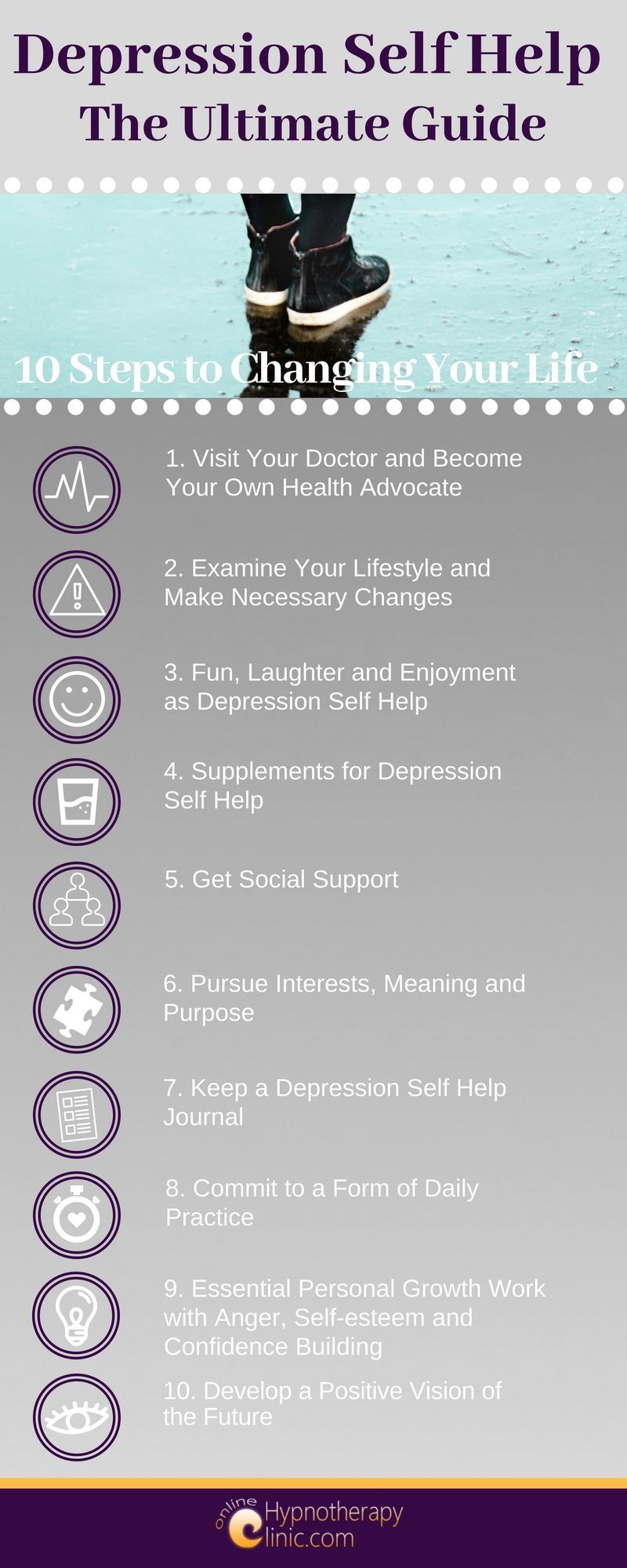 This ultimate depression self help guide introduces you to concepts, tools and processes you can use at home to heal from depression.
This ultimate depression self help guide introduces you to concepts, tools and processes you can use at home to heal from depression.1. Visit Your Doctor and Become Your own Health Advocate
You may have an official diagnosis of a depressive disorder, or you
may simply feel depressed and have never talked about it to anyone.
Either way, I recommend you go and see your doctor to start this
journey. Why?
- If you suffer from a physical condition, such as a chronic illness, or had a stroke or heart attack recently- discuss with your doctor the possibility that there may be a connection to feeling depressed. This can have implications for your overall treatment, so do tell your doctor how you feel.
- If you suffer from severe depression you might require a referral to a psychiatrist.
- You might want to be referred for counseling.
- You
need to discuss the option of taking medication for depression with
your doctor. Have a frank discussion, and be your own health advocate.
Do your research beforehand.
The medication leaflet will
inform you about side effects and risks and- however long, is an
important read. Also do an online search to see how other people are
doing on this medication. Not all medications for depression are equal-
and there are individual differences in how well they work for and how
they agree with different people.
Educate yourself about your
condition, the different treatment options available both with
conventional and alternative medicine.
Only after all your research is done, weigh up the potential benefits of depression medication against all the implications. Only then make your decision.
Medication may be important to:
- Bridge a crisis period
- Stabilize your symptoms
- Help you function again if your life has fallen apart
If
the decision is to go on medication, discuss with your doctor for how
long you will be on it, how and at what intervals it should be reviewed,
and don’t be afraid to ask any other questions you may have.
Examine Your Lifestyle and Make Necessary Changes
Have an honest look at your lifestyle to see whether things you are doing support you or may be promoting depression.
You are looking at issues such as:
Also consider this:
While researching the medication, option, I also recommend looking at the other side- there is research that completely contradicts the argument that medications balance chemical imbalances in the brain...
Listen to Professor Irving Kirsch here in this two minute video on his work.
Here, Professor Irving Kirsch talks about anti-depressants in much greater detail, including the side effects and alternatives. Some strong opinions the further you get to the end- worth watching! This is a 10 minute video.
2. Examine Your Lifestyle and Make Necessary Changes
Also, I recommend you examine your lifestyle for any issues that might be causing or promoting depression. Be honest with yourself here. You will be looking at issues like:
Alcohol and Drugs
Drinking alcohol and taking recreational drugs can lead to feelings of depression or else can enhance them. I recommend to put a stop to both. Why?
Simply because if you want your situation to change you need to get
the best out of the treatment options you choose, and you won’t if you
don’t stop. Seeking treatment or attempting depression self help while
drinking or taking drugs is like driving with accelerator and break
pressed at the same time.
When you drink or take drugs, there can be that attractive illusion of comfort or of temporarily forgetting how bad you feel. But you know yourself- it’s temporary. There is always that next morning- when things often feel twice as bad as they did before that first drink.
A Healthy Diet
When you feel depressed it can be hard to feed yourself well. But here
is the thing. Not getting in the right nutrients to support your brain
and body on its own can actually cause feelings of depression over time.
Therefore, making dietary changes alone can lift your spirits.
I
recommend you examine your diet and make the changes you can make.
Whatever you decide to change, introduce the changes gradually, say one
per week.
I don’t recommend any diets as such. A balanced, healthy
diet is the best thing for depression self help. But here are some
obvious points that I do make to clients, based on much reading,
thinking and my own observations over the years.
- Reduce or avoid junk food such as deep fried food, white bread, sugar, sugary foods and drinks.
- Choose wholemeal or wholegrain breads over white bread. Mix your grains introducing some spelt and rye breads if you can.
- Ideally exclude most things that contain artificial sweeteners, flavors or flavor enhancers as well as preservatives. Start reading food labels to identify those.
- Eat fresh fruit and vegetables, making sure you eat something raw every day. Greens are important. Smoothies can help get that raw nutrition in. Buy organic if you can afford to which will help you avoid GM foods and a whole lot of exposure to chemicals.
- Change your oils and fats to healthy ones. For example, use coconut oil for cooking and olive oil for salads. Have some healthy oils every day.
- Drink plenty of clean fresh water.
For more information, find resource articles on depression self help foods on my Pinterest page on the board ‘Depression Self Help’.
Sleep
When you are depressed, your sleep schedule is often all over
the place. Some people can’t sleep at night and stay up watching TV
until all hours, catching up with sleep during the day time. Others
sleep day and night and find it hard to get up at all.
A healthy and
regular sleep rhythm is important for your brain and body to function
well. Not getting enough sleep during the night and then missing
sunlight exposure during the day will cause your physiology to go
haywire. And, while rest is important, missing out on day time
activities will play right into that depression.
Introduce a regular sleep rhythm. This may take a while and can be a bit of work. Prepare for bedtime every night using a wind down routine.
- Introduce screen free time before bedtime to cut out exposure to blue light
- You can use Lavender and Frankincense essential oils to settle yourself
- Meditation can be a good bedtime routine
- Relaxing yoga poses can help settle the body
- You can take a bath
- Or simply try playing soothing music during this time
Then,
go to bed at a reasonable hour. It may take time for your body to adapt
to the new rhythm but eventually it will, because it will always veer
towards a natural homeostasis.
In the morning, you can aid waking up
by opening the curtains to let sunlight in. Light signals to your body
and brain that it’s time to get active. Rise as soon as you can and go
about your routine.
Routine
When you feel depressed it’s so easy
to slip into doing little or nothing during the day. Hiding away in
front of the TV or computer can be so tempting, but will make the
depression worse in the long run. A regular routine, however simple and
limited at the start, will keep you active and engaged with the world.
Draw up a plan for a simple routine that includes things like self care, shopping, time for your interests and socializing and commit to sticking with it, even if you don’t feel like it in the moment. Oftentimes, getting started with an activity is the most difficult part, and once you are actively engaged in the activity you start feeling a little better.
Exercise
Do at least a small bit even if you don’t feel like it initially:
- Exercise produces endorphins which make you feel good.
- Go for a walk around the block, or better, in a local park. Extend the walk bit by bit.
- You can do gentle exercise at home, practicing an exercise sequence that does not require any equipment. Start simply and work your way up.
- You can practice yoga at home.
Find resource articles on this on my Pinterest page on my ‘Depression Self Help’ board.
3. Fun, Laughter and Enjoyment are Depression Self Help
Fun, laughter and enjoyment are a crucial antidote to depression. It has
been said that laughter is the best medicine. When you laugh, you feel
alive. When you laugh, you can see the light side of life. When you
feel joy and when you have fun life feels worthwhile. That’s where you
want to be.
Find out what works for you. What do you enjoy?
Write about this in your journal (see below).
Here are some simple and (substance-free) ideas:
- Watch comedy shows.
- Talk to your pet.
- Go for a walk and pay attention to the beautiful sunlight.
- Feel rain on your skin.
- Hug your partner or friend for longer than 20 seconds.
- Take a bubble bath.
Make
sure you build fun, laughter and enjoyment into your life. Do it as often as you can. Make notes
of these good moments, and stick them to your fridge or notice board, so
that you can read back over them when things are tough.
4. Supplements for Depression Self Help
Many people swear that supplementation improved their depression or
cured it altogether. I believe it is somewhat important, and if you can
afford to buy supplements by all means do- giving your brain the right
micro nutrients it requires can only do good.
There are many different
recommendations out there for supplements for depression self help. You
could spend a lot of money here. Most quality supplements don’t come
cheap.
I will recommend just three- which are all very
commonsensical. The supplements I recommend are the top three major
supports for the immune system and the nervous system and brain alike.
These three are:
Magnesium,
the most important element for your nervous system and brain which most
people are deficient in- with an emphasis on an easy-to-absorb
presentation such as magnesium citrate.
Vitamin D- which you can get
from exposing your skin to sunshine for 20 minutes every day if you live
in a warm climate. If you live in a colder zone, supplement all year
round to support your immune system and your brain.
Vitamin B complex- which is powerful nutrition for your brain improving overall functioning.
5. Get Social Support
I mentioned the approach to depression that argues depression is caused by the alienation and isolation of modern living. Based on this, I recommend you look at your support systems, and at becoming or remaining engaged socially.
Consider the following areas:
Friends.
There is a chance that when you have a lot going on in your life, not all of the people you used to be friendly with will be prepared to be there for you. Take it that this says more about them than it does about you.
You need supportive friends, people who can understand what is going on for you. You don't need superficiality. Some folks may drop away, but typically the friends that remain, or the new people who come into your life, become quality friends- and that's what you want.
Even if you don’t feel like it, make a commitment to meeting a friend at least once a week. If you find it hard to talk about what is going on for you, share an activity with them like doing sports or going for a walk.
Support Groups.
Consider attending a support group
for depression self help where you can meet folks in similar
situations. If this is not an option for you, join an online forum for
depression self help.
Having contact with others who understand depression or suffer from it themselves is important because it breaks through the illusion many sufferers have that they are all alone with their experience and that nobody can possibly understand. In reality, you are far from alone and there is a whole world out there of people who understand exactly the kinds of things you are going through.
A social context.
Set up a social context for yourself. Join a social club or community
group.
Have a look what’s around in your area. Make sure you mix at
least once a week even if you may not feel like it one the day- make a
point of showing up.
When you feel depressed feeling joy and
closeness with others can be difficult. Often, people suffering from
depression perceive a wide gap between themselves and others. A sense of
loneliness and isolation can dominate.
Take showing up to at least
one social event per week as a prescription you must follow, no matter
how much you want to avoid it. You were made to be a social being.
Understand that how you feel right now represents a distortion of how
things should be.
Keep at it and over time your feelings will shift. Look out for hints of feeling comforted, feeling some joy, feeling a sense of lightness, or feeling understood. There is important healing in these moments. Make a note of them, and stick the note on the fridge or another place that you look at often to remind yourself of them on dark days.
Seeing a Professional.
Consider
seeing a counselor or psychotherapist who can support you with working
through much of this guide. Attending counseling will also help to
break the isolation of depression.
If you feel suicidal or at risk of self harming, do not hesitate, procrastinate or postpone-you must definitely talk to a professional. If it’s urgent, there are often suicide crisis lines (check for your area) who will refer you on. Ultimately you should see a professional counselor on a regular basis. You can still use this guide alongside.
6. Pursue Interests, Meaning and Purpose
Try out different interests. When you come upon the one thing that’s right for you, this can lead to finding meaning and purpose in life once again.
So, don’t be afraid to
try out different things, even those you have not previously considered.
You are on a journey of self discovery. Stretch your comfort zone a little every week.
Think about these points:
- What activities do you feel would interest you, make you feel fulfilled and give you joy?
- What did you dream of becoming when you were a child or a young person?
- Deep down, in the back of your mind, are there any interests you have secretly dreamt of pursuing but not given yourself permission to?
If you cannot think of anything, here are some ideas to get you started exploring:
- Join a choir. Singing has been shown to improve your overall health and promote joy. There are choirs that are open to anyone, even those who believe they cannot sing.
- Learn to play an instrument.
- Join the local library and start reading whatever grabs your interest. Join a book club.
- Take up volunteering for a cause you like.
- Join a sports club.
- Take up painting classes, even if you believe you are no good at art, and see if you enjoy it.
- Go to a yoga class.
- Take up creative writing and join a writers group.
7. Keep a Depression Self Help Journal
Your journal will fulfill a number of functions.
It
will aid self expression. Even when you believe that nobody out there
can understand what you are going through- your journal will be there
for you. Write it all down- your thoughts and feelings- don’t censor
anything and don’t hold back. In this way, keeping a journal can ease
the burden of depression.
It will help you track and challenge the negative
thinking that drives depression. Depression will make you believe that
the world is all bleak. It will try to fool you into believing life is
not worthwhile. Depression has a way of making you feel like you are no
good and nobody cares. These are just some of the most common negative
thinking patterns that occur with depression.
But are they reality?
In reality, the world is a big place, and a multitude of experiences are
open to you. You simply cannot see them right now.
I recommend you
start recording and challenging this negative thinking, and your journal
is the ideal place to make a start with this.
As you come across negative thoughts, grab your journal and record them. When you have time, come back to your journal and work with them in the following way: write the negative thoughts in one column- then examine them and write the reality in the other. Here is an example to help you along.
|
Depression thought I failed my exam. I am just no good at this. I never get things right. I really don’t like myself as a result. |
|
Reality I failed my exam this time. In reality I can repeat the exam. I was so exhausted that I couldn’t study as much as was required. There is a good chance I will get it next time. Having gone through it once, I now know what to expect. |
Your journal will also help you support the good feelings. Write about the good moments and experiences. Mark them in a different color and read beck over them once a week. Remind yourself that good things are happening in your life, even if depression tries to tell you there are not.
Your journal can help you find purpose and meaning. I
recommended above that you try out different activities to explore where
you can find purpose and meaning. Here, I am encouraging you to record
how these experiments went. Record how you enjoyed different
activities, what works for you and what does not. As you are writing,
new ideas will come to you. Note them down. They will give you more to
work with.
Getting to know yourself. As you write into your journal every day, make a slot for recording ’new things I learned about me’. Focus on the positive, as depression will have your mind filled with negativity already. Write about the things you are discovering that you are good at.
For example, write about positive qualities like newly
discovered talents that emerge from your creative explorations or from
social outings. Don’t allow yourself to belittle or berate these
positive things you are discovering about yourself in any way.
I recommend that once a week you make a time slot for reading back over your entire week’s writing. You will have forgotten some things by now and it’s good to bring them back to your awareness. This will help you to get to know yourself better. You will soon start to discover patterns that occur with the depression you are experiencing, and you will also soon start to see that there are positives about life, and about you as a person in particular.
8. Commit to a Form of Daily Practice
I recommend you introduce one form of daily practice for depression self help.
Of the options that follow, it doesn’t matter so much what you do, it could even be something other than what is on my list- as long as it fulfills the function of centering body and mind. What does matters is that the activity becomes daily practice- whether you feel like it or not. Keep at it and over time, you will notice changes.
These are the most common forms of daily practice:
Relaxation
Relaxation is a great daily practice when you feel depressed. When the body relaxes, feelings of well-being and joy can emerge spontaneously.
There are many relaxation methods and protocols.
For example, you could use self hypnosis relaxation techniques. Spend about twenty minutes relaxing in any one sitting, making sure you are comfortable and that all your muscles can genuinely let go. After you start practicing relaxation you will soon notice moments of emotional lightness.
Self Hypnosis for Depression Self Help
Self hypnosis for depression is another powerful tool at your disposal. It can help you stabilize and improve your symptoms.
I myself use self
hypnosis for myself a lot, for whatever issues I am currently working
on. In relation to depression and any other deep seated emotional issue,
self hypnosis (which will always use suggestion hypnosis techniques) is
ideally best combined with regression hypnosis which can help to heal
any underlying issues such as childhood trauma.
While you can use
relaxation hypnosis and self hypnosis for depression from the very start
of your healing process, you are best advised to access life regression
hypnosis only once you have made some progress on the route towards
recovery and your symptoms have stabilized.
Mindfulness, Meditation and Yoga
Mindfulness,
meditation and yoga all lead to improved clarity of mind. Practicing
one of these options daily will improve both your physical and mental
well-being.
I recommend Transcendental Meditation (TM) which I practice myself daily. This is a powerful form of meditation, easily learned and very effective. With a small time investment of twenty minutes in the morning and early evening each you can gain much more stability and clarity that you would not know yourself- and the results happen fast, within a few days of commencing daily practice.
9. Essential Personal Growth for Depression Self Help
Make Friends with Your Anger
Based on working with many clients suffering from depression over the
years, one of my observations is that there seems to be a strong link
between depression and anger.
Personally, I am a strong believer in anger. Anger, I believe, is a survival tool we were given by evolution. What do I mean?
What
I am getting at is what I believe the function of anger to be: in its
purest form, anger lets us know when our physical or emotional space is
under threat. Anger alerts us to get ready to defend our boundaries. As
such, anger is meant to get our attention and to call us into action.
Being human, we can never get rid of feeling anger at certain times. Feeling angry is quite natural when:
- Someone or something annoys you.
- Something reminds you of a hurtful childhood incident.
- You want to say no to someone.
- You feel uncomfortable or invaded.
Some
people who suffer from depression often turn their anger against
themselves: they berate themselves and put themselves down internally.
They feel bad about themselves, cannot see their talents or anything
good about themselves. Often, this reflects what was done to them,
perhaps when they were a child.
Other people who feel depressed
cannot feel their anger at all. When you are severely depressed, most
emotions can be hard to feel. Not being able to feel anger though,
causes problems- when you cannot feel where your boundary is, how can
you assertively defend it?
Plus, for many people, the emotion of
anger has negative connotations. Many people correlate anger with
violence, sometimes based on past experience of, for example, domestic
violence. Growing up, women especially are told that they must not be
angry. (It’s not ‘ladylike’).
If this is you, I am inviting you to
take in the premise that feeling anger and acting upon that anger are
two different things. When you feel angry, you most likely experience
angry thoughts, accompanied by body sensations such as:
- A temperature change from cold to hot
- A ball of energy in your stomach
- A rush of moving energy
- An impulse to move arms or legs
When
you feel these things, they usually build up, peak, and then abate. And
you can experience all of what I described, going through the entire
cycle of physiological arousal, by just staying with this experience
inside you mindfully- just letting it be, not attempting to change it,
not judging it- you can track your thoughts and body sensations and hang
in there until they pass- and you can do all this without ever acting
upon that anger at all.
Of course, depending on the situation, this
can be very difficult to do because we are human. I brought this up
because I want to make the point that it can be perfectly safe to feel
that anger and that feeling it alone will not hurt anybody.
In fact,
not feeling that anger will invariably get someone hurt- you. Getting
in touch with your anger, in my professional opinion, is crucial
personal development for healing from depression.
Use the self
help tools I have introduced you to in this article for this piece of
work, especially journaling and meditation. Write about anger, or the
absence of it. Soon enough you will get more information. Once you feel
it, bring your attention inward and track those body sensations.
It’s
best not to act while you feel angry. Stay with it and the feeling
along with the strong body sensations will pass. You will see things
more clearly then. That’s the time to decide on what action you might
want to take- if any. Just feeling anger can be enough for some people.
It’s like a powerful form of energy work.
I have found that when people who suffer from depression can finally get in touch with their anger, more often than not, there will be a major breakthrough.
- They start to feel better.
- They are better able to take care of themselves.
- They start taking an interest in life once more.
- They become more assertive.
- They can feel their power again.
- They start feeling all their emotions once again, including positive ones like joy and love.
Working
with anger is very difficult work, no doubt. Another challenge is not
to become stuck in chronic anger. Anger is chronic, if the same themes
keep replaying themselves. Ultimately, you want to move towards being
able to let it go.
Easier said than done, I know.
If you find the
idea of feeling and working with anger very challenging, you are not
alone. Having support from a professional can help here. You can use the depression self help skills in this guide
alongside to feel more empowered.
Also, I want to mention that depression hypnosis is a fantastic tool to work with anger in a very safe and contained way. In fact, hypnotherapy for depression can help to speed the healing process by a great deal, especially when the treatment contains regression hypnosis.
Boost Your Self Esteem and Build Confidence
Many
people who suffer from depression lose confidence and have low self
esteem. No wonder when everyday living has become a struggle.
Depression tries to fool you with negative messages. That niggling inner voice will repeatedly put you down, make you feel useless and worthless- based on not being able to keep up with the fast pace of life when you go through rough patches.
A critical step in depression self help is to
challenge this type of negative thinking. I introduced you to a fabulous
tool further above- the depression self help journal which I recommend
you write into daily. This will get you started with developing
awareness around your personal negative thinking patterns and it gives
you a simple and effective tool for starting to analyze them and see
them for the destructive illusions they are.
After a while of
practicing journal writing, you can bring this work to the next level,
where you challenge these types of negative thoughts as they arise- in
the moment. Developing this awareness will give you fantastic freedom
because it opens the door to boosting self esteem and building
confidence.
You can then turn the negative messages around and
replace them- there and then- with reality checks. You can then
challenge self criticism.
You can then also redefine the concept of
‘failure’ which underlies a great deal of the low self esteem. What do I
mean? Many people who suffer from depression judge themselves to be a
failure at practically every opportunity.
- They compare themselves to others all the time and the others will always be seen in a better light and see themselves as a ‘failure’.
- They believe that when they make a mistake this is synonymous with failure.
In
reality, it is never a good idea to compare oneself to others. First of
all, others always have their weaknesses, too. You might not know them
or see them from the outside, but be assured that everyone does have
struggles and difficulties somewhere in their life. You can rely on
that.
So, rather than judging yourself so harshly, develop self
compassion for yourself and your own personal battles. You are going
through a lot, and you are hanging in there. Well done, you.
And, in reality, are you a failure? What is failure, really?
I believe failure is a very misunderstood concept. I believe that the only failure there is, is in not trying and giving up.
Because how do we learn in life?
Learning is not a straightforward journey of constant improvement.
Rather, learning often comes in the form of so called mistakes. Every mistake
is a learning experience. In fact, I would like you to stop using the
words 'mistake' and 'failure' altogether. Instead, call it learning. And
accept the nature of your own learning journey. You have your own personal way of
learning. You are you- a unique individual.
Mastering these two
challenges will bring you a long way towards building self
esteem. You can further support it using visual cues, like the positive
notes left on your fridge or noticeboard that I mentioned earlier, or by
putting together a ‘positivity board’ with positive notes and images
about yourself and put it in a prominent place where you will see it
daily.
Then, you can start developing a positive self image and start valuing yourself for all the positive, amazing qualities you have.
And with this foundation laid, you can start building confidence by trying yourself out in areas you feel would suit you.
10. Develop a Positive Vision of the Future
Once you start using the tools I have introduced you to in this depression self help guide, you are well on the way to recovery. Keep going for a little while. Commit to doing the work, even when you don’t feel like it. If you do keep going, the moment will come when you will notice a positive vision of the future emerge in your mind.
Either all of a sudden, or in bits and pieces, you will be able to start seeing a place for yourself in this world. A place where you will feel you belong, have something to contribute, and where you can feel worthwhile. Once it does, be sure to capture this moment. Craft a vision board, write it all down in your depression self help journal.
Developing this positive vision does not represent the end of your journey by any means. What it does signify however, is a breakthrough into a new stage where you start feeling much better about yourself and life in general.
Of course the journey described in this depression self help guide is rarely ‘quick and easy’. However, the tools work. I have seen them work many times. They can work for you, too. The journey will take time and dedication but I believe you can do this and I will keep my fingers crossed for you.
More About Healing with Hypnotherapy
More About Healing with Hypnotherapy
Hypnosis and Trauma
What are the most suitable trauma tools in the hypnosis world? What should you look for in a hypnotist if you want to use hypnosis to deal with trauma?
Free Yourself From Depression With Hypnosis
Hypnotherapy for Mental Health
Find out why hypnotherapy is so well suited to reducing and ultimately clearing mental health symptoms such as anxiety, depression and low self esteem symptoms.
Depression Self Help- The Ultimate Guide
This comprehensive guide introduces you to easy and effective concepts, tools and processes you can use at home to help improve your symptoms of depression.
Depression Hypnosis- 7 Major Benefits for You
Depression hypnosis is often the last option considered on a long list of depression interventions. In this article I will make the case for seven major benefits in store for you when you choose to work with depression hypnosis.
Hypnotherapy for Depression- Jason's Story
In this article, meet Jason- a client who attended me for hypnotherapy for depression. His story is designed to give you a good, realistic feel for the 'before and after' snapshots, so that you know what you can expect from hypnotherapy for depression.
Hypnosis for Depression- Jason's Journey Towards Recovery
Find out what a typical journey of recovery from depression looks like when you use a thorough hypnotherapy program.
Self Hypnosis for Depression- 9 Major Benefits for You
Self hypnosis for depression is a much underrated self help tool. In this article I will make the case for nine major benefits for you if you decide to use this fantastic self help tool.
Improve Your Self Esteem With Hypnotherapy
Find out tools, tips and ten steps on how you can support yourself in building your self esteem.
Self Esteem Hypnosis- Does it Really Work?
In this article i discuss the available scientific evidence that backs self esteem hypnosis, present a client case study that demonstrates how hypnosis for self esteem can change your life, and finally outline five major benefits of self esteem hypnosis.
Hypnosis for Self Esteem- Why Most People Should Consider it
Here, I make the case for self esteem hypnosis to be used as a cornerstone of any hypnosis program. Find out why...
The Most prominent benefits of self esteem hypnosis which can help you change your life for the better.
Boost Your Confidence With Hypnosis
Hypnosis for Confidence- A Success Story
This article gives you an insight into client work and how confidence hypnosis helps people change their lives.
Confidence Hypnosis- Could it Benefit You?
In this comprehensive article, find out what confidence hypnosis is, how it works and what it could do for you.
Find out if self hypnosis is the right tool for you for building confidence.
Get Rid of Fears and Phobias With Hypnosis
Hypnosis for Fears and Phobias- How it Can Help You
Hypnosis for fears and phobias is a fast, efficient and safe way to help you become symptom free and regain your quality of life. In this article learn what causes fears and phobias, how they present, how hypnotherapy can help and what scientific findings exist.
Improve Your Sleep
Learn how to reset your life for regular, peaceful sleep in 10 easy steps.
Find out 7 tremendous benefits this work could hold for you.
Insomnia Hypnotherapy- Does it Really Work?
Find out the science behind hypnotherapy for sleep.
7 Wonderful benefits sleep hypnosis has in store for you.
Migraine Hypnosis
Migraines are a serious issue affecting as many as one in 20 women and one in 15 men. Find out how migraine hypnosis can benefit you as part of your migraine relief plan.
Overcome Stress and Achieve Relaxation With Hypnosis
Hypnosis for Stress- Get Your Equilibrium Back
This article is designed to introduce you to hypnosis for stress relief, to what it is, why it is a suitable tool for overcoming toxic stress and on what it can do for you.
Hypnotherapy for Stress- A Success Story
Follow my client Jeffrey from being totally stressed out to getting back in charge of his life. See what's involved with hypnotherapy for stress reduction so that you can decide if you might want to give it a go.
Self Hypnosis for Stress- 5 Major Gains for You
See how you could benefit from self hypnosis for stress.
Find out how hypnosis for relaxation compares to other relaxation methods such as relaxation music and guided visualization.
How Relaxation Hypnosis Can Help You Change Your Life
This article is designed to introduce you to relaxation hypnosis, its benefits, how it works and why it may be help you to change your life.
How Relaxation Self Hypnosis Can Benefit You in 6 Ways
Find out how you could benefit from self hypnosis for relaxation so that you can decide if it is right for you.
Self Hypnosis Relaxation Techniques for You
Learn self hypnosis relaxation techniques that you can start to use at home today.
In the comments underneath, let our community know how you are getting on with depression self help.
Regards,

Recent Articles
-
Havening Technique Training auf Deutsch
Apr 18, 25 02:59 AM
Havening Technique Training auf Deutsch- Details und Buchung -
Client Testimonials
Oct 06, 23 06:08 AM
Client Testimonials of my Online REPAIRenting® Program that uses various psychosensory approaches for safe and quick transformation -
Smoke Free Thanks to This Amazing Resource
Aug 02, 23 09:26 AM
Oh thank you for this simple resolution to all my worries! I feel like I have had a weight lifted off my shoulders. It is like cheating on giving up smoking.
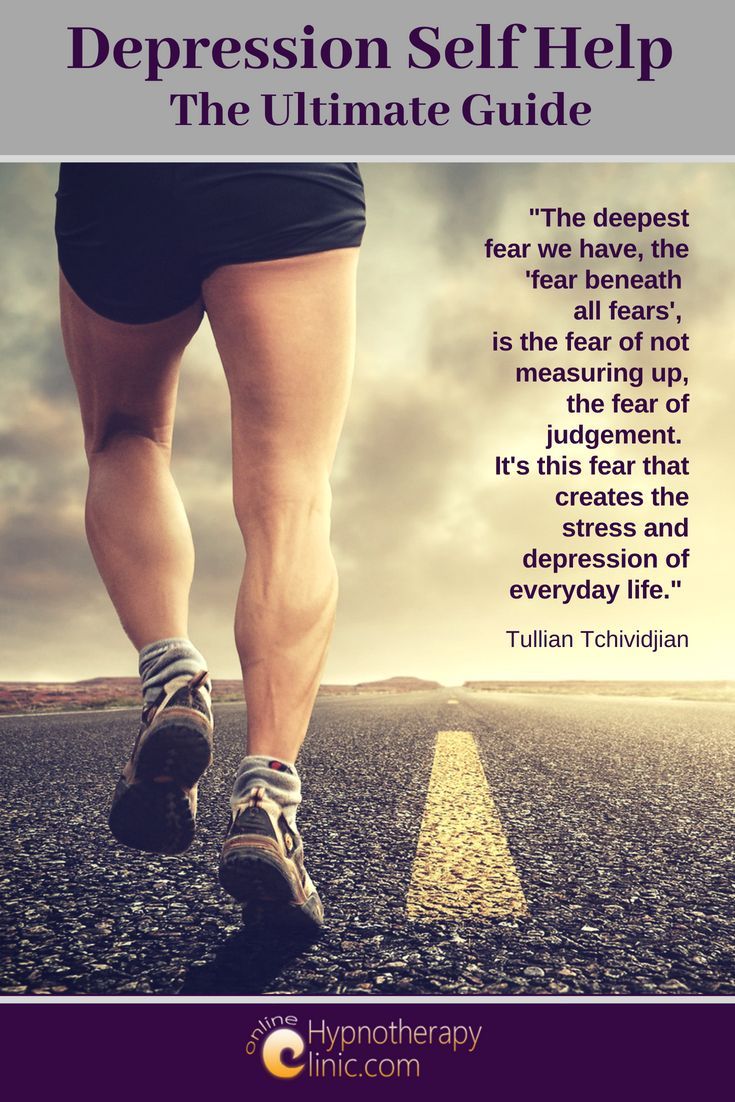
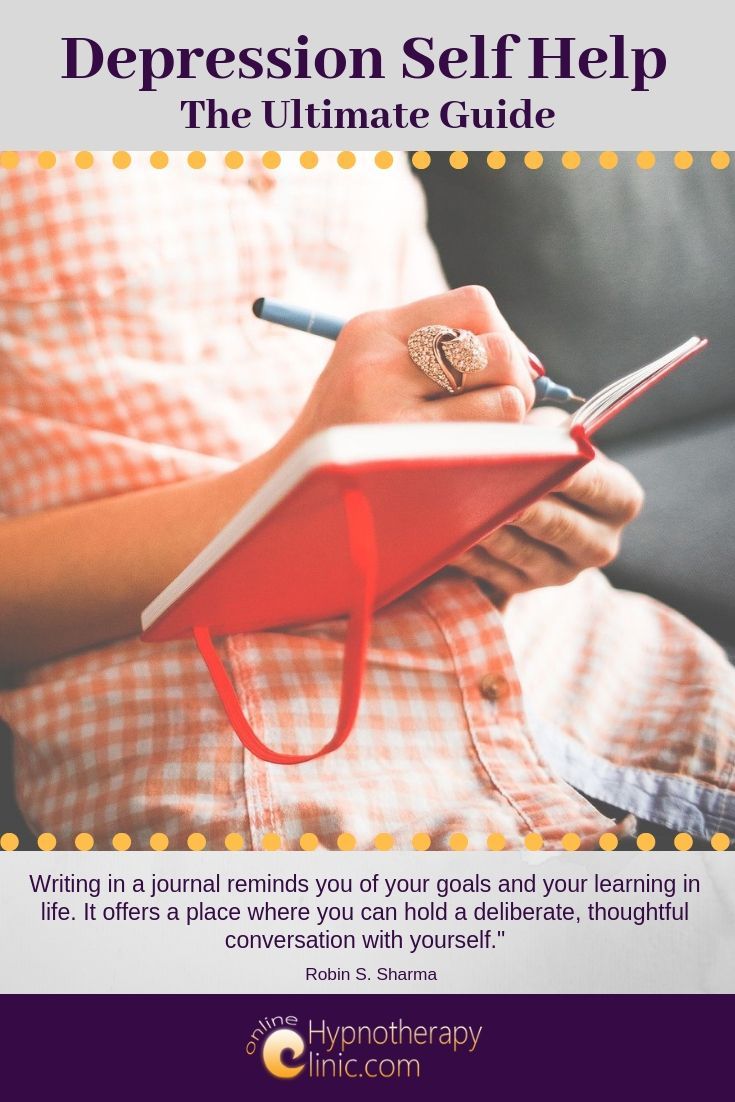
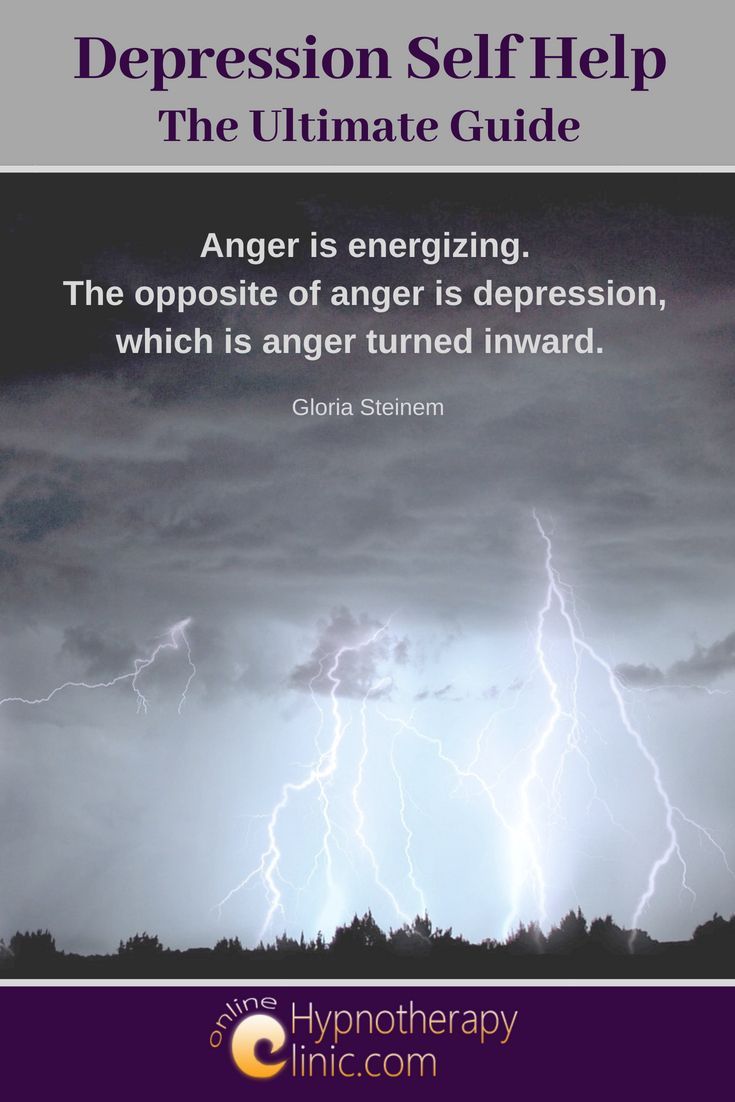
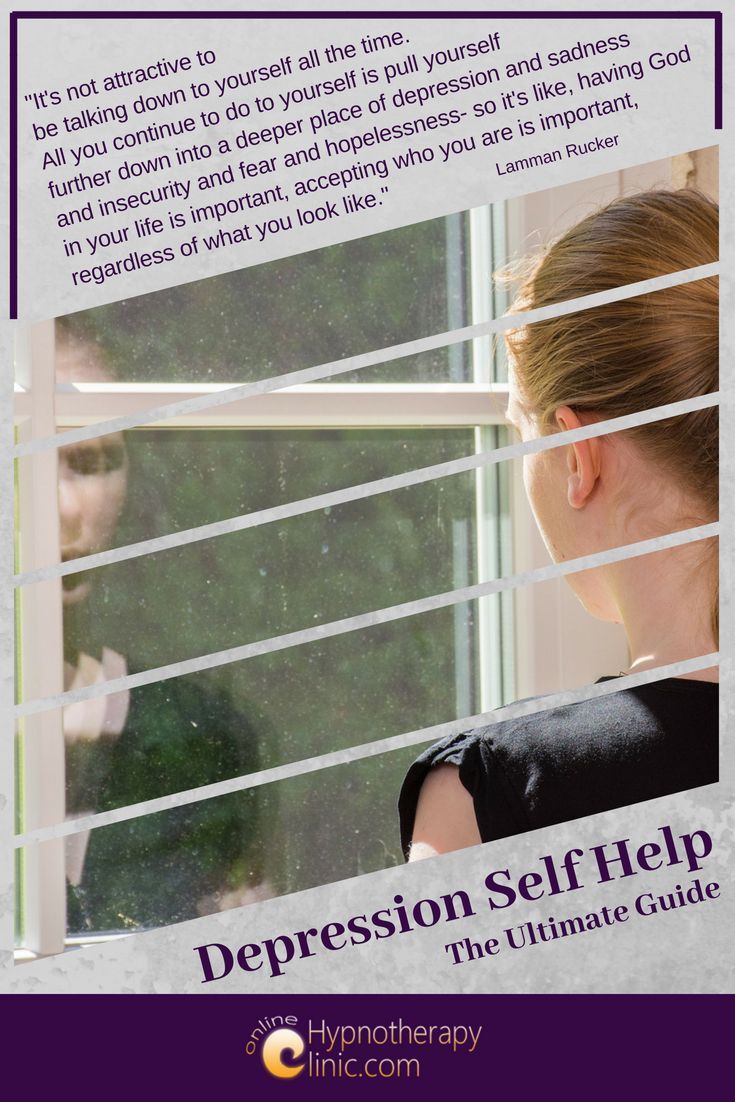
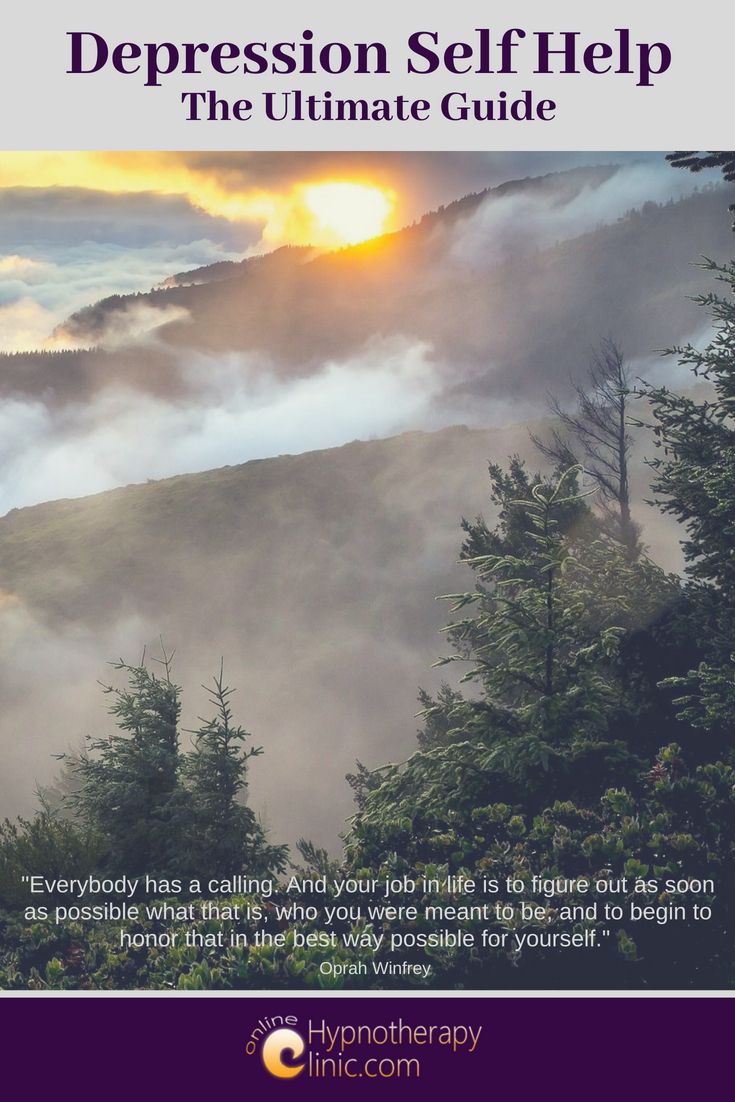

New! Comments
What do you think? Leave a comment in the box below.